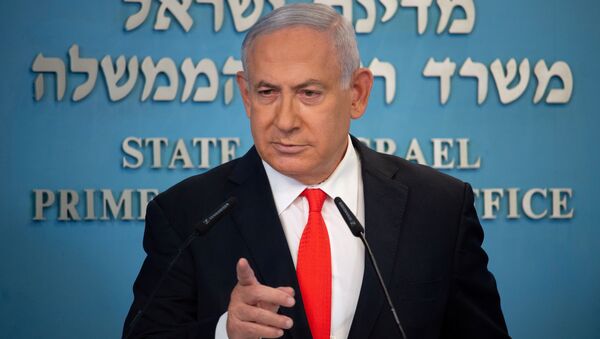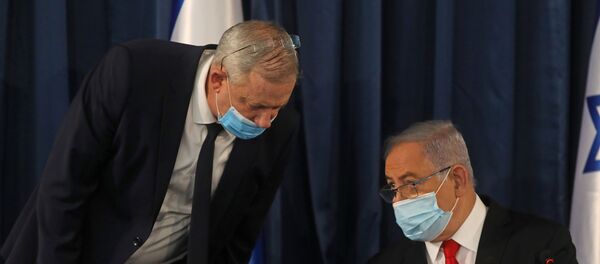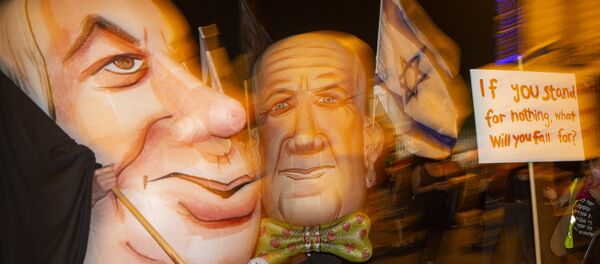Once again, Israelis are returning to the polls. Members of the country's opposition intend to submit a bill on Wednesday that if passed will dissolve the current government, prompting another general vote, the fourth in just two years.
Recent polls predict that Likud party, under the leadership of Prime Minister Benjamin Netanyahu, will be the strongest performer, as it is projected to get 31 out of 120 seats in the country's parliament, the Knesset.
To remain in his position, Netanyahu will need to form a coalition with other right-of-centre parties to obtain the magic number of at least 61 parliamentarians.
In the past, assembling that number was not an easy task, and the efforts of the country's opposition to see Netanyahu leave office will not make it a "peace of cake" this time either.
Netanyahu's Tango with Religious Parties
And this will certainly push the PM, just as it did in the past, into the arms of the Ultra-Orthodox parties.
Currently, Israel has two of those. United Torah Judaism with its seven seats, represents Orthodox Ashkenazi Jews, whereas Shas, with its nine Knesset seats, is a party that represents Sephardic believers.
Both have shown "right-wing tendencies", making them "a natural ally" of Likud, but Dr. Shuki Friedman, Director of the Centre for Religion, Nation and State at the Israel Democracy Institute, says the forged alliance between Netanyahu and the Ultra-Orthodox goes beyond similar political views. It is a matter of common interests.
"What we are seeing here is a win-win situation. Bibi (Netanyahu) is getting the parties' blind support for all his policies, whatever they might be, and in return, he meets all their demands."
The problem is that their list of demands is rather long and, very often, is not taken lightly by the general public.
Members of the Ultra-Orthodox community are usually exempt from army service, which is normally obligatory for all Israelis, men and women alike.
The Haredi community also receives multiple benefits and discounts on schooling, kindergartens, transportation, banking services and even taxes, something that ordinary Israelis usually do not get, and it also enjoys government funding.
Reports suggested that the Haredi leaders applied pressure on Netanyahu to increase their yearly funds and that the government was willing to boost their cash injections by an additional $120 million.
That "love affair" between Netanyahu and the religious parties started long time ago, during his first term as prime minister in 1996.
Back then, those parties received 14 seats and became an important partner of Netanyahu, but as time went by and their influence grew stronger, the reliance of the PM on their assistance has become even more prominent.
Love Affair Won't End
The reason for this, thinks Friedman, is the political system in Israel, that requires the formation of coalitions and the fact that the religious parties have managed to become "a decisive factor" that determines who the prime minister will be.
"Netanyahu realised very early that for him to remain in his seat, he will need to cooperate with the Ultra-Orthodox, especially given the fact that this is Israel's fastest growing community. And while their numbers keep climbing, the amount of those who associate themselves with the left -- that currently stands at 16 percent -- is shrinking."
This is the reason why Friedman thinks that the influence of the Haredi community over Netanyahu is unlikely to change.
"Their influence will remain strong and they will continue to cooperate with Netanyahu in the future," says the expert, responding to a question on whether he envisioned a scenario where Ultra-Orthodox parties could join the anti-Bibi camp that's been growing in Israel as masses get frustrated with the PM's coronavirus policies and corruption charges.
"Unless something dramatic happens, I don’t see how that will change so I believe that the religious parties will continue to be loyal to Netanyahu, no matter what."




